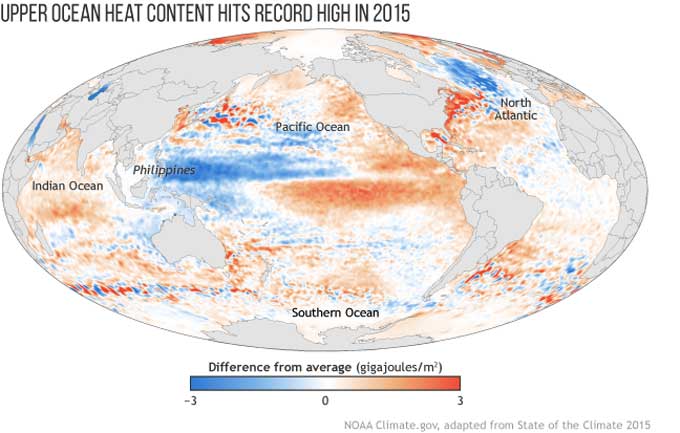
The State of the Climate 2015 report released this week has reaffirmed that efforts by Pacific Island countries need to be accelerated to keep the lead and momentum of the Suva Declaration initiated by the Pacific Islands Development Forum (PIDF).
Pacific Islands Development Forum Secretary-General Francois Martel says he is extremely concerned at the low level of ratification of the Paris Agreement to date, with only 22 countries and 1.0 percent of emissions.
“The report confirms our worst fears that time is not on our side and that projections on climate impacts were very much underestimated,” he said.
“This is why Pacific leaders need to remain vigilant and champion the ratification and implementation of the Paris Agreement globally.”
The State of the Climate 2015 report released online by the American Meteorological Society also disclosed how important it is for Pacific leaders to continue their advocacy for climate action at COP22 and beyond.
Martel added that Pacific nations together represented nearly one-fifth of the planet and this would send a strong message to the rest of the world if such a treaty could be agreed upon and ratified by the most vulnerable nations on Earth.
“Pacific leaders did it before to pledge allegiance against nuclear arms so we should now look at fossil fuels in the same light.
“This report for the Pacific reminds us of the urgency and confirms that climate induced impacts will destroy our nations. The Pacific Islands should continue to be at the forefront of that battle,” he said.
‘Broke records’
The report also confirmed that 2015 surpassed 2014 as the warmest year since the mid-to-late 19th century.
Climate indicators in the report show patterns, changes, and trends of the global climate system, several markers such as land and ocean temperatures, sea levels and greenhouse gases broke records set just one year prior.
Last year’s record heat resulted from the combined influence of long-term global warming and one of the strongest El Niño events the globe has experienced since at least 1950.
Furthermore a Guardian article published this month has stated that limiting global temperatures to below the 1.5 degree target, negotiated in Paris last year, and measured in relation to pre-industrial temperatures, would be extremely difficult.
The article published figures based on Met Office data by meteorologist Ed Hawkins of Reading University that showed the average global temperatures have been more than one degree above pre-industrial levels for every month except one this year.













































[…] https://asiapacificreport.nz/2016/08/09/climate-change-report-confirms-worst-fears-for-pacific-nation… […]
Comments are closed.